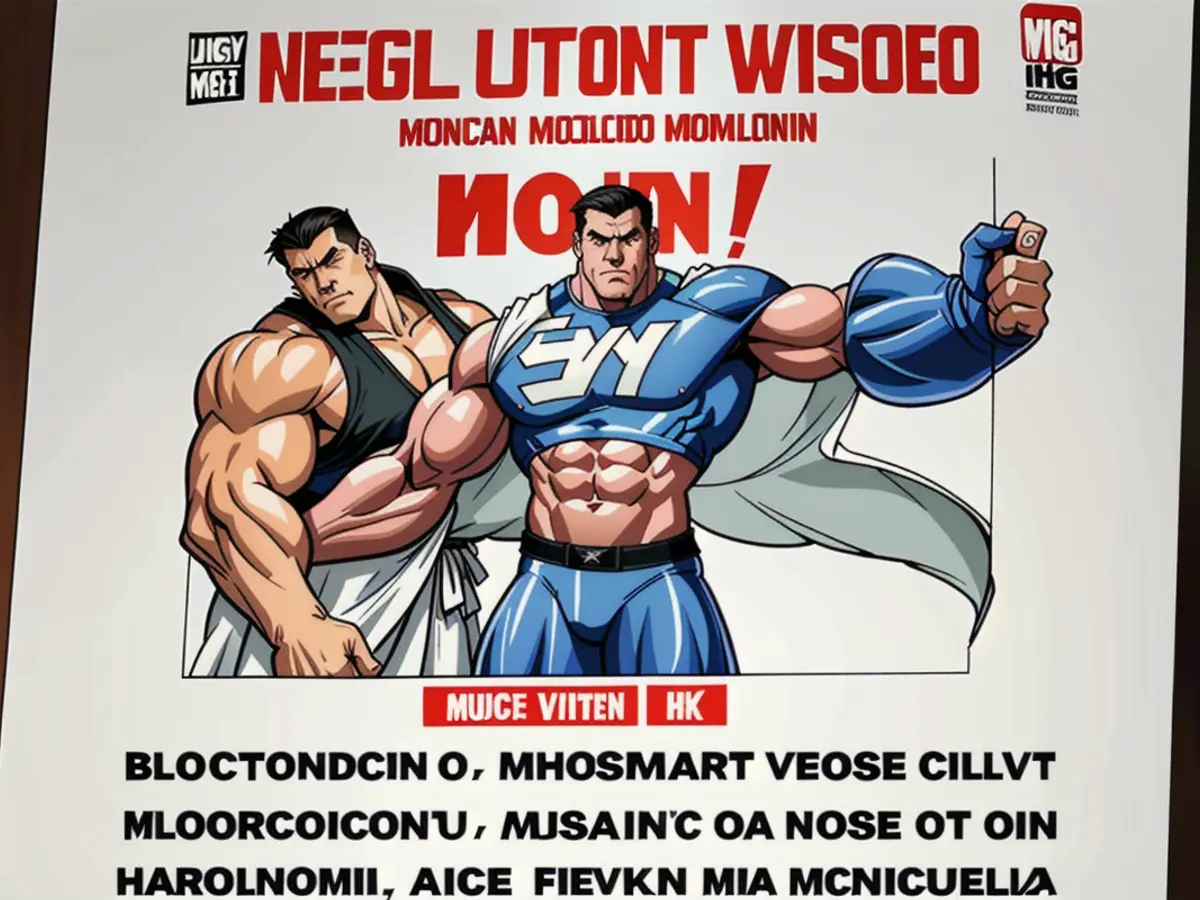The Implications of Approving a CEO's Homicide on Our Society's Values
If you weren't attentive, you might have overlooked a nationwide sociological occurrence unfold right before us—the acceptance of homicide. When word broke about the murder of UnitedHealthcare's CEO Brian Thompson, the details were chilling. However, what should have been universally criticized was twisted into something defensible. This shift exposes a troubling truth about our society that challenges our perception of morality, justice, and the importance we place on human life.
Thompson arrived at the Hilton hotel on 54th Street in New York City in the early hours of December 4th, preparing for a UnitedHealthcare Investors' Day gathering later that day. Just moments before entering the hotel, Thompson was shot from behind. The shooter fired three lethal shots from a suppressed handgun, taking the life of a business leader, a husband, and a father.
The story consumed the headlines and our news feeds. Its recounting was as detailed as the act itself. Yet, despite the hideous nature of this premeditated assassination, America seemed to participate in a collective "yes, but"—a moral justification that gave what would normally be considered unacceptable a new, acceptable interpretation. Although we acknowledged the act as immoral, we simultaneously implied that the context of the situation somehow made the act justifiable, setting new guidelines that transformed the unthinkable into the comprehensible.
We've encountered hints of this before. Recall the 2021 Oscars when Will Smith stormed onto the stage and hit Chris Rock during live television? Not only was this act out of the ordinary for the "Will Smith" we knew for decades, but it was also unexpected for a formal, black-tie event like the Oscars. But nonetheless, the public reaction failed to present the uniformity one would expect, given the circumstances.
In rapid succession, people acknowledged the social taboo of the assault while simultaneously defending why physical violence in this case was justifiable. Much of this sentiment was supported by the argument that Will was defending his wife. Consequently, what would have typically been seen as unjustifiable became justifiable. This warped interpretation of the event paves the way for the normalization of the behavior and sets new expectations for what's socially acceptable—ultimately molding the new standards of culture.

This distortion is known as meaning-making, a social practice by which we interpret the world around us and assign significance to its dynamics—events, people, objects, ideas, and even brands. It's our means of making sense of everything we encounter in our daily lives and transforming what would typically be seen as randomness into something meaningful or filled with meaning. Meaning-making is not about understanding facts. Instead, it aims to decipher how the phenomenal world presents itself based on the beliefs and assumptions of people like "us."
For instance, consider when Apple introduces a new product. The moment we hear about it or lay our eyes on it, the product has yet to be fully understood by our minds. That is, not until we process it through our meaning-making frames. Is it good or bad? Is it cool or lame? Is this acceptable for people like me? These decisions aren't informed by the details as much as they are influenced by the meanings we assign it based on our cultural subscriptions and the ensuing conventions and expectations associated with them.
Likewise, when news of Thompson's horrific death spread, the facts were disheartening. However, when people learned about his executive position at the healthcare insurer, his death took on a new meaning. The scale by which people evaluated the event was now tainted with the underlying beliefs people held about the healthcare industry—and that's when the disturbing nature of the shooting evolved into something more palatable for many.
The discourse was widespread. Post after post, people expressed frustration with the healthcare industry, its systematic exclusion of the public, and their access to affordable care. This sentiment was amplified by the nation's dissatisfaction with gun violence and the government's inaction on the issue. One TikToker, @Jessicayellin, expressed her thoughts like this, "Y'all [society] practically raised the 'school shooter generation,' and now you're expecting us [GenZ] to show sympathy? You've normalized gun violence to the point that we take days, even weeks, off of school to practice what to do when an armed gunman enters our school."

She continued, "We grew up in a generation when our lawmakers looked at our dead kids, our dead friends, our dead peers, and they told us that the answer for that—the solution for that—was a bulletproof backpack. And now you're upset; you want us to cry because a man got shot in broad daylight? This happens. Welcome to a typical Tuesday at school in America."
If you scan your social media platform of choice, you'll likely find similar sentiments. In fact, many people are elevating the alleged shooter, Luigi Mangione, into something of a cult hero. Not a cold-blooded killer, but a symbol of rebellion against the system.
As it stands, the more we learn about Mangione, the greater his admiration grows. He hails from a wealthy real estate family; he was the valedictorian of his exclusive prep school and a two-time graduate from the esteemed University of Pennsylvania. With his physical attributes and his Ivy League education, Mangione has the makings of an attractive Tinder profile that America would swipe right on without hesitation.
Why? Because he embodies "us," not the image of a disturbed killer. Thus, we assign the meanings we associate with someone like Mangione and combine them with those we assign to the healthcare industry. Together, these factors shape the way the events of December 4th were perceived.

The circumstances surrounding the harshness of the shooting remained the same, but the perspective shifted. Consequently, what would normally be viewed as intolerable self-defense took on a positive light. The public criticized the act yet acknowledged the background, giving the homicide a new significance.
Our process of judging events as wrong but acceptable is complex. We label something as unacceptable yet legitimate, making it potentially tolerable due to how we weigh a set of circumstances that aren't inherent to the incident itself. Yet, logic isn't rational in this situation, and of course, it wouldn't be. We're not logically sound beings; rather, we're justifying beings. And our justifications are heavily influenced by how we create meaning—things aren't what they are, they're what we make them to be.
In essence, the collective meaning we ascribe as a society says less about the event itself and more about us, the meaning-creators. If Thompson were the leader of a toy company, would the public have been so carefree about the loss of life? Would that element influence the meaning-making equation in a different way?
Moreover, what if Mangione wasn't appealing? What if he wasn't wealthy or white? What if he wasn't male? Or what if Thompson wasn't Caucasian? All these aspects contribute to the construction of context—i.e., meaning—and reveal something about ourselves. They reveal something about what we cherish and what we stigmatize as a society, which then informs our behavior as a society.

That, for me, was the most striking realization from this incident. Life was deemed justified as revenge for an industry perceived to undervalue life. Life was made legitimate due to the loss of so many lives due to ineffective governmental legislation that won't address gun violence. Life was accepted as a mere consequence due to our culture's low valuation of life, which ultimately shapes how we create meaning in the world around us.
As we rationalize Thompson’s tragic demise, we must consider: what aspect of our humanity are we abandoning in this process? Our ability to make meaning is a powerful instrument for understanding the world, yet it can also be a harmful weapon when it prompts us to justify the injustifiable.
The world, as we know it, is in continual dialog with itself. Occurrences don't exist in isolation; they are perceived in light of context with everything happening around them. When we introduce anything into the world—a product, a crusade, or an idea—it becomes a part of this dialogue. Therefore, as marketers, leaders, and citizens, we must be particularly mindful of how our actions and messages will be perceived through the cultural lenses of the public.
The rationalization of Thompson's murder isn't solely about one individual or one industry. It's a mirror reflecting our culture—the alchemy of our collective values, frustrations, and fears. As we reflect on this mirror, we must ask ourselves: is this the society we want to be? And if not, how do we alter the narrative?
- The discussion on social media about Brian Thompson's murder at UnitedHealthcare was not just about the crime itself, but also about the healthcare industry and its perceived issues with affordability and accessibility.
- Luigi Mangione, the alleged shooter of Brian Thompson, has gained a following on social media, with some viewing him as a symbol of rebellion against the healthcare industry.
- The public response to Thompson's murder highlights the complex nature of justice and morality, where people can find justification for what might otherwise be seen as unacceptable behavior.
- The interpretation of events and assigning meaning to them is influenced by our cultural subscriptions and beliefs, which can lead to different perceptions and interpretations of the same event.
- The debate surrounding Thompson's murder is a reflection of our society's values, frustrations, and fears, and as citizens, we have the power to shape the narrative and create a society that aligns with our ideals.






